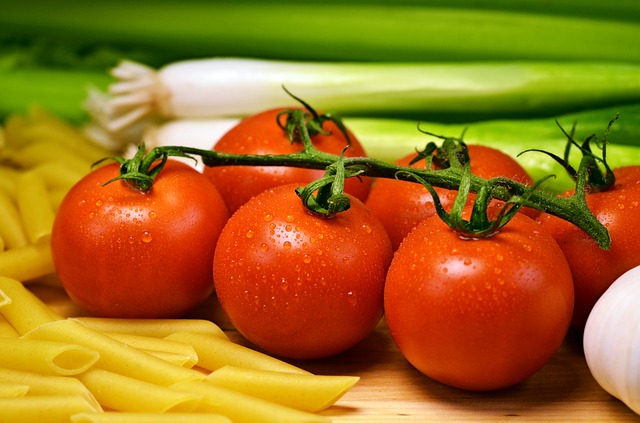Stop putting tomatoes in the refrigerator, science says. While chilling them might keep them looking fresh compared to if they’re left on the counter, keeping tomatoes in the fridge removes that distinct taste that makes them what they are.
Scientists have known for some time that cooling tomatoes drains all flavor, but until now, the reason behind this fact has been a puzzle, the Los Angeles Times reports.
Researchers at the Plant Innovation Center at the University of Florida in Gainesville have finally figured out the mystery of cold tomatoes: when the environment falls below 68 degrees Fahrenheit, the genes that make a tomato taste the way it does stop.
Denise Tieman, a research associate professor, explains,
Basically, the tomato gets cold and tells itself to stop making these aroma compounds. The change is irreversible.
Tieman has been studying tomato flavor for the past ten years. She found that the taste of tomatoes comes from a combination of sugars, acids and chemicals called aroma compounds. Aroma compounds, in essence, produce the smell that makes up a tomato’s flavor. “The sugars and acids are what you taste on the tongue, but there would be no excitement to the flavor without the aroma compounds,” Tieman says.
Previous studies have shown that tomatoes put in the fridge have the same amount of sugars and acids compared to fresh tomatoes, but have much less aroma compounds.
The study conducted some experiments to determine how long it takes for a tomato to start losing these chemicals. The researchers chilled tomatoes for one, three and seven days, and compared them to freshly picked tomatoes. While the tomatoes that had been chilled for seven days showed the least amount of aroma compounds, the tomatoes that were in the fridge for three days already showed a significant loss.
In a taste test, participants rated the cool tomatoes as less tasty that the fresh ones.
Further analyses showed that the proteins responsible for creating the aroma compounds were considerably lesser in chilled tomatoes, and that the genes are turned off in a process named methylation.
However, Tieman and the team could not identify why tomatoes turn off these flavor genes when it gets cold.
The researchers intend to take a closer look at tomato varieties that can resist chilling. Consumers might be convinced not to put tomatoes in the fridge, but the fruit are chilled at supermarkets and distribution centers anyway.
The study was published in the Proceedings of the National Academy of Sciences.
























